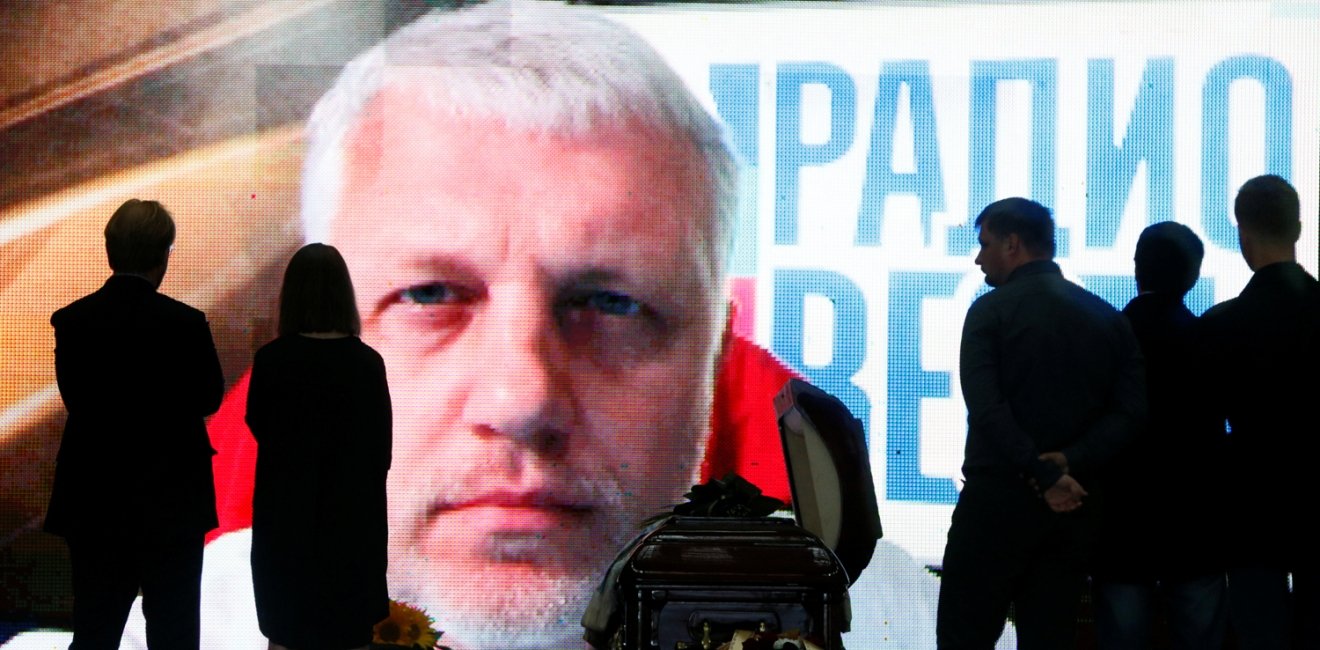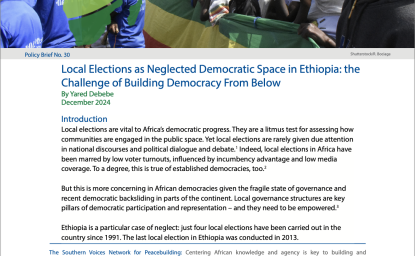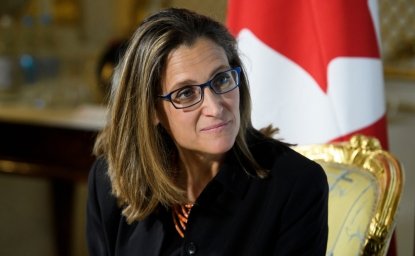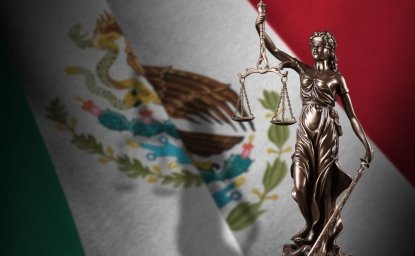By Kateryna Smagliy
The shocking murder of journalist Pavel Sheremet by a car bomb in Kyiv on July 20 symbolizes the incredibly complicated domestic political transformation underway in Ukraine and the country’s remarkably vulnerable international position.
Pavel’s life was linked to three neighboring post-Soviet states (Belarus, Russia, and Ukraine), and it is entirely possible that forces from any one of the three could be involved in his murder. Born in Minsk and educated as a historian and economist, Sheremet turned to investigative journalism and soon earned the reputation of Belarussian President Lukashenka’s “personal enemy.” After serving a three-month prison sentence in Belarus for “illegal journalist activities and links to foreign secret services,” he moved to Russia and developed friendly relations with the opposition politician Boris Nemtsov. Pavel quickly came to realize that free journalism had also died in Russia.
For the last five years, Sheremet lived in Ukraine, where the media environment had become much freer after the Euromaidan. In Kyiv, he wrote investigative blogs for the media outlet Ukrainska Pravda and hosted a radio show on radio Vesti. “Pavel was very important because he was a success story,” said Hromadske radio journalist Andriy Kulykov. “After Belarus and after Russia, he found a place in Ukraine, which strived to be democratic. His life and work here served as a proof that Ukraine at least attempted to become a democratic state.”
Hours after the murder, Ukraine’s President Poroshenko requested the American FBI’s assistance in investigating the case. He said the killing was intended “to destabilize the situation in Ukraine” and that “foreign interests could not be excluded.” Anatoliy Matios, Chief Military Prosecutor of Ukraine, told TV Channel 5 that three weeks before his murder Sheremet visited Moscow to meet with people close to Boris Nemtsov. He allegedly also talked to Yanukovych's Tax Minister, Oleksandr Klymenko, now a fugitive in Russia.
Experts in Ukraine contend that Russia’s secret services could indeed be responsible for the murder as part of an effort to instigate a crisis, destabilize Ukraine internally, and discredit it internationally.
In truth, Russia has not missed the opportunity to use Sheremet’s murder to blacken Ukraine’s name. The official Russian reaction came in the form of Kremlin spokesman Dmitri Peskov reservedly expressing Moscow’s “serious concerns with the murder” of Sheremet, a Russian citizen. Those cautious words were quickly followed by vehement attacks in Russian social media and by major media commentators. They did not mince words: Ukraine was portrayed as a “mass grave of journalists” as well as a failed state where “basic democratic norms are violated and where hired guns from nationalist organizations walk freely, while threatening and harassing citizens.”
For anyone familiar with the present-day situation in Ukraine, such statements sound simply ridiculous. They are mostly meant for the Russian domestic audience. Russia’s economic situation grows worse, and therefore the Russian propaganda machine has to redouble its efforts to cement the image of its neighbor as nothing more than a chaos-stricken land, where journalists are murdered in broad daylight.
In Ukraine itself, parallels are being drawn to the infamous murder of Ukrainska Pravda’s founder Georgiy Gongadze in 2000. The “Kuchma-gate” scandal that followed Gongadze’s murder, in which recordings implicated Leonid Kuchma, Ukraine’s president at the time, greatly damaged Ukraine’s international reputation. It undermined cooperation with the EU, U.S. and NATO.
The recent killing of Sheremet is thus a sad and incomprehensible déjà vu moment, reminiscent of Gongadze’s murder. Just as the Ukraine Without Kuchma movement led to the Orange Revolution in 2004, the killing of Pavel Sheremet has the potential to accelerate the nation’s growing dissatisfaction with the Poroshenko government, perhaps leading to pre-term parliamentary elections or even a political coup.
President Poroshenko may have his reasons to pin the blame for Sheremet’s murder on the almighty Russian conspiracy as the latest ploy to destabilize the Ukraine, yet many argue that Ukraine’s current problems are mostly the result of Poroshenko’s own rule. Some commentators are saying that Sheremet’s murder can be linked to inaction in solving other high-profile murders of Ukrainian journalists. There has been no progress in naming those who ordered the killing of Gongadze, even after his family’s lawyer, Valentyna Telychenko, was appointed as Deputy Prosecutor General.
More importantly, there still have been no criminal convictions of members of the Yanukovych mafia regime, and needed reforms at the General Prosecutor’s Office remain long overdue. Corruption, nepotism and lack of reforms indicate that Ukraine’s enemies are not only outside, but also inside the country.
As his popularity ratings shrink, Poroshenko’s political standing is increasingly compromised. Seen as “imperious and unaccountable,” he appears to be following in his predecessors’ footsteps in creating his own clan. Just days before his senseless murder, Sheremet urged Ukraine’s decision-makers to clean-up their own Augean stables instead of pointing fingers at external adversaries. Speaking at an expert roundtable on acceleration of Ukraine’s reforms, Pavel asked, “Are we concerned by the possible revenge from the opposition? Or of pro-Russian forces? Or are we fearful of societal radicalization?” Sheremet argued that Ukraine’s enemies were “injustice and the old, corrupt politicians.” Since “no changes and no breakthroughs” have occurred, he argued that, “the old social consensus fell to its hands and knees.”
Sheremet was similarly not shy about casting blame on Ukraine’s oligarchs. In an interview with Hromadske.tv, he maintained that oligarchs totally monopolized whole sectors of the economy and are using the profits to develop political instruments of pressure and control over the authorities. For these and other reasons, many Ukrainian journalists simply do not buy Petro Poroshenko’s claims that Russia was behind Sheremet’s murder. Katya Gorchinskaya, chief executive of Hromadske.tv, wrote she did not see “the Kremlin's hand there.” Instead, she saw a broader pattern of harassment and threats against the media. “Massive attacks from online trolls and public opinion leaders against independent media have become the norm... This is often done publicly, with the authorities’ blessing and with financial support from the people in power,” she wrote. Echoing Gorchynska’s alarm, chief editor of Hromadske Radio Kyrylo Lukerenko argued the media has been targeted as a “critical element of Ukraine's democratic system.” Civic activist and MP Svitlana Zalishchuk compared Sheremet’s murder to “a slaughter against Ukrainska Pravda’s professional investigative journalism, which had been substituting [Ukraine’s] independent procuracy for more than a decade.”
Pavel Sheremet’s death, and the social reaction to it, is a clear warning to Ukraine’s government. The country might be entering a new era of high turbulence. The patience of Ukraine’s citizens and its friends in the West is running out. The implementation of in-depth and comprehensive reforms is now, more than ever, a matter of Ukraine’s national security.
Moral and financial support from the West is extremely important, but only Ukrainians can take their country out of post-Soviet inertia. Thus, all stakeholders—the government, the parliament, the expert community, and Ukraine’s civil society—should unite and triple their efforts to implement reforms, not just talk about them. Political populism should stop and give way to mature dialogue with citizens on their county’s modernization strategy – its benefits, but also possible high costs.
At Pavel’s funeral, his mother Lyudmila Stanislavovna tried very hard to stay strong. She had only one request to the many friends of her son, who came to Minsk from Ukraine to say good-bye. She urged us to stay strong and not go astray. “Make sure Pasha did not die in vain! Keep fighting! Demonstrate that things can be done differently!”
The opinions expressed are those of the author alone.





